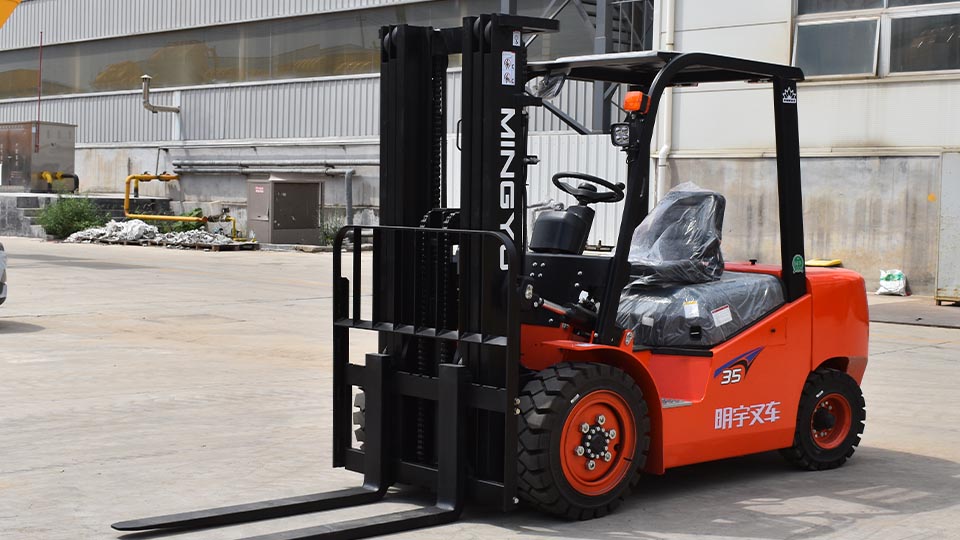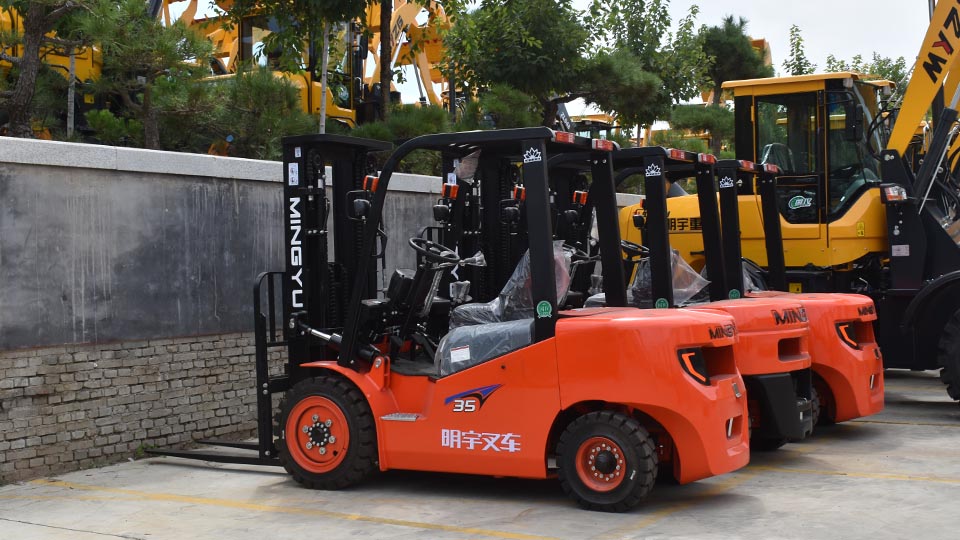
Why does my forklift battery smell like rotten eggs?" is a common and concerning question for anyone working with industrial equipment. This article will delve into the technical reasons behind this foul odor, which is a clear indicator of a serious issue with a lead-acid forklift battery. The smell is not a mystery; it's the unmistakable scent of hydrogen sulfide gas , a byproduct of a specific chemical reaction occurring within the battery.
This technical deep-dive will cover the following:
The chemical reaction behind the smell.
The primary causes of this dangerous condition.
The significant risks involved.
Preventative maintenance and safety protocols.
The Chemistry Behind the Odor: Hydrogen Sulfide
A standard lead-acid forklift battery is an electrochemical device that stores energy through a reversible chemical reaction. It consists of lead plates (Pb) (anodes and cathodes) immersed in an electrolyte solution of sulfuric acid

During normal operation, the battery discharges and charges without producing a strong odor. However, when the battery is subjected to certain conditions, an unwanted side reaction can occur.
The "rotten egg" smell is caused by the release of hydrogen sulfide gas (H
S). This gas is produced when the sulfuric acid electrolyte is chemically reduced, a process that should not happen under normal operating conditions. The reaction can be simplified as:
This is a simplified representation of a complex process, but it illustrates the key takeaway: the sulfuric acid in the battery's electrolyte is being broken down in an abnormal way, releasing a toxic and highly flammable gas.
The Root Causes: Why This Reaction Happens
The formation of hydrogen sulfide is not a random event. It is almost always a result of overcharging or poor battery maintenance.
1. Overcharging and Excessive Heat
Overcharging is the most common cause of the rotten egg smell. When a battery is charged at a rate or voltage higher than its specified limits, several things happen:
Excessive Electrolysis: Normal charging produces some hydrogen and oxygen gas. However, overcharging accelerates this process, causing a rapid breakdown of the electrolyte.
Heat Generation: Excessive current flow generates a significant amount of heat. This heat can cause the battery's internal temperature to rise, which further accelerates the unwanted chemical reactions.
Sulfate Reduction: The combination of high current, high voltage, and excessive heat can lead to a condition known as sulfation. Under these extreme conditions, the lead sulfate (PbSO
4
) that forms on the plates can be chemically reduced, leading to the formation of hydrogen sulfide gas.
2. Low Electrolyte Levels
The electrolyte in a lead-acid battery is a solution of sulfuric acid and water. During normal charging and discharging, water is consumed through electrolysis. If the electrolyte level drops too low, the following can occur:
Plate Exposure: The lead plates may become exposed to air, which can cause them to corrode and lead to a concentration of acid in the remaining electrolyte.
Increased Current Density: With less electrolyte, the current density on the remaining submerged plates increases. This can lead to localized "hot spots" and accelerate the unwanted side reactions, promoting the production of hydrogen sulfide.
3. Contamination
The presence of impurities in the electrolyte can also contribute to the problem. If a battery is topped off with anything other than distilled or de-ionized water, contaminants can react with the sulfuric acid and lead plates, leading to the release of various gases, including hydrogen sulfide.
The Serious Risks: A Warning Sign of Danger
The rotten egg smell is not just a nuisance; it's a critical warning sign of a dangerous condition. The primary risks are:
Even at low concentrations, it can cause eye and respiratory irritation. At higher concentrations, it can be fatal. The gas can paralyze the olfactory nerve, making it impossible to detect the smell, even as concentrations rise to dangerous levels
2. Flammability and Explosion
are highly flammable. When these gases accumulate in a confined space, they create a significant risk of explosion. A single spark from a nearby electrical connection, a static discharge, or a charging station can ignite the gases, leading to a catastrophic event.

3. Battery Damage and Failure
The conditions that produce the rotten egg smell are destructive to the battery itself. The excessive heat and chemical reactions can warp the lead plates, degrade the separators, and permanently reduce the battery's capacity and lifespan. This can lead to a complete and irreversible failure of the battery.
Prevention and Safe Handling: A Technical Protocol
The key to avoiding this issue and ensuring safety lies in proper battery maintenance and charging procedures.
1. Proper Charging Protocols
Use the Right Charger: Always use a charger that is correctly matched to the battery's voltage and amperage.
Avoid Overcharging: Modern smart chargers are designed to prevent overcharging by automatically reducing the charge rate as the battery nears full capacity. Ensure your charging system is functioning correctly.
Charge in a Ventilated Area: Always charge the battery in a well-ventilated area to allow any normal off-gassing to dissipate safely.
2. Regular Maintenance
Check Electrolyte Levels: Regularly inspect the electrolyte levels in each cell. They should be checked weekly, especially for high-use batteries.
Top Off with Distilled Water: Always use distilled or de-ionized water to top off the cells. Never use tap water, as the minerals and impurities can cause damage.
Keep the Battery Clean: A clean battery top prevents short circuits and reduces the risk of unwanted chemical reactions.
3. Emergency Response
If you smell the rotten egg odor, immediately take the following steps:
Stop Charging/Using the Battery: Disconnect the battery from the charger or the forklift immediately.
Ventilate the Area: Increase ventilation in the area to dissipate the gases.
Inspect for Damage: Once the area is safe, visually inspect the battery for signs of bulging, cracking, or excessive heat.
Do Not Attempt to Fix It: Do not try to repair the battery yourself. Contact a qualified technician to assess the battery and determine if it can be safely reconditioned or if it must be replaced.
Conclusion
The smell of rotten eggs coming from a forklift battery is not a trivial matter. It is a clear and unmistakable sign of a serious underlying issue, most often overcharging or improper maintenance. This condition leads to the production of toxic and flammable hydrogen sulfide gas, posing significant risks to both personnel and equipment.
By adhering to strict maintenance schedules, using the correct charging equipment, and acting quickly and decisively at the first sign of this dangerous odor, you can ensure the longevity of your equipment and, more importantly, the safety of your team. In the world of industrial equipment, proactive maintenance and a deep understanding of the technology are not just best practices—they are an absolute necessity.
Name: selena
Mobile:+86-13176910558
Tel:+86-0535-2090977
Whatsapp:8613181602336
Email:vip@mingyuforklift.com
Add:Xiaqiu Town, Laizhou, Yantai City, Shandong Province, China